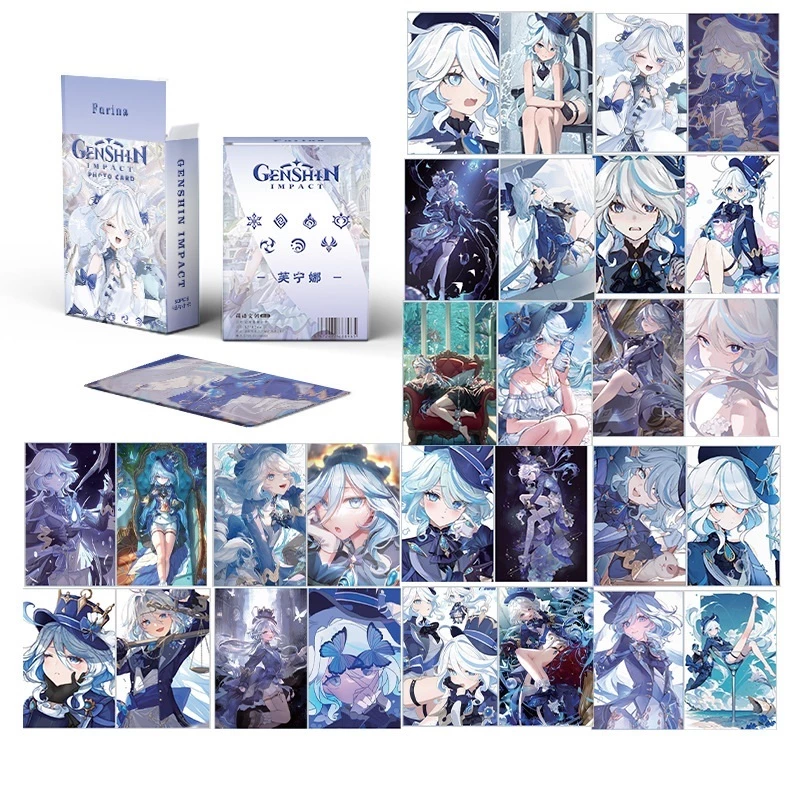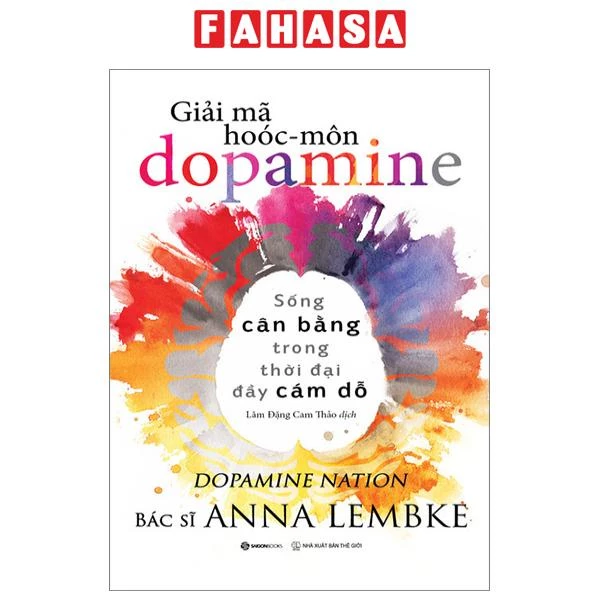Tengri giáo
Tengri giáo, còn được gọi là Tengrii giáo, Tenggeri giáo, Tenger giáo, là một tôn giáo cổ xưa bắt nguồn từ Trung Á và vùng thảo nguyên Á-Âu với trung tâm là thần bầu trời Tengri.

Thuật ngữ này cũng mô tả một số phong trào và giáo lý tôn giáo bản địa của người Turk - Mông Cổ hiện đại. Đó là tôn giáo thịnh hành của các dân tộc Turk, Mông Cổ (bao gồm cả Bulgar và Hung Nô), người Hung, và có thể cả người Mãn châu và người Hungary, và là quốc giáo của một số quốc gia thời trung cổ như Hãn quốc Đột Quyết (Khaganat Göktürk), Khaganat Turk Tây, Khaganat Turk Đông, Đại Bulgaria Cổ, Đệ Nhất Đế quốc Bulgaria, Volga Bulgaria, Khazar (Tourkia Đông).
Từ nguyên
[sửa | sửa mã nguồn]Trong Irk Bitig, một bản viết tay thế kỷ 9 về bói toán, Tengri được nhắc đến với tên gọi theo tiếng Thổ Nhĩ Kỳ là Türük Tängrisi (Thần của người Thổ Nhĩ Kỳ).[1] Theo nhiều học giả, ở cấp độ hoàng gia, đặc biệt là vào thế kỷ 12 - 13, Tengri giáo là một tôn giáo độc thần, và những tín đồ thờ Tengri lúc bấy giờ tin vào một thực thể duy nhất.
Tên gọi Tengri (tiếng Đột Quyết: Täŋri) [2] có nghĩa là "trời". Trong tiếng Thổ Nhĩ Kỳ, tiếng Mông Cổ cổ đại và hiện đại, có các biến thể là Tengeri, Tangara, Tangri, Tanri, Tangre, Tegri, Tingir, Tenkri, Teri, Ter và Ture.[3][4] Stefan Georg thì đề xuất rằng Tengri tiếng Turk là bắt nguồn từ một từ mượn từ ngôn ngữ Enisei cổ *tɨŋgVr-, có nghĩa là "cao".[5]
Tengri giáo vẫn có sự ủng hộ của giới trí thức ở các quốc gia Turk Trung Á như Kyrgyzstan và Kazakhstan, và Liên bang Nga (tại Tatarstan, Bashkortostan) kể từ khi Liên Xô tan rã trong những năm 1990. Tengri giáo cũng đang trải qua cuộc hồi sinh có tổ chức ở Buryatia, Sakha (Yakutia), Khakassia, Tuva và ở các dân tộc Turk khác ở Siberia.
Tham khảo
[sửa | sửa mã nguồn]- ^ Tekin 1993.
- ^ Roux 1956.
- ^ Pettazzoni 1956, tr. 261; Tanyu 1980, tr. 9f; Güngör & Günay 1997, tr. 36.
- ^ Tanyu 2007, tr. 11–13.
- ^ Georg, Stefan (2001): Türkisch/Mongolisch tengri "Himmel/Gott" und seine Herkunft. Studia Etymologica Cracoviensia 6: 83–100.
- Nguồn tham khảo
- Alici, Mustafa (2011). “The Idea of God in Ancient Turkish Religion According to Raffaele Pettazzoni. A Comparison with the Turkish Historian of Religions Hikmet Tanyu”. SMSR. 77 (1): 137–54.
- Baldick, Julian (2000). Animals and shaman: ancient religions of Central Asia. New York: NYU Press. ISBN 9780814798720.
- Balzer, Marjorie Mandelstam biên tập (2015) [1990]. Shamanism: Soviet Studies of Traditional Religion in Siberia and Central Asia. London/New York: Routledge. ISBN 9781138179295.
- Beydili, Celal (2005). Türk Mitolojisi Ansiklopedik Sözlük [Turkic Mythology Encyclopedic Dictionary] (bằng tiếng Thổ Nhĩ Kỳ). İstanbul: Yurt Kitap-Yayın. ISBN 9759025051.
- Bourdeaux, Michael; Filatov, Sergey biên tập (2006). Современная религиозная жизнь России. Опыт систематического описания [Contemporary Religious Life of Russia. Systematic description experience] (bằng tiếng Nga). 4. Москва: Keston Institute; Логос. ISBN 5-98704-057-4.
- Brent, Peter (1976). The Mongol Empire: Genghis Khan: His Triumph and his Legacy. London: Book Club Associates.
- Dilek, İbrahim (2013). Türk Mitoloji Sözlüğü (Altay-Yakut) [Turkic Mythology Dictionary (Altai-Yakut)] (bằng tiếng Thổ Nhĩ Kỳ). İstanbul: Gazi Kitabevi.
- Eröz, Mehmet (1992). Eski Türk dini (gök tanrı inancı) ve Alevîlik-Bektaşilik [Old Turkish Religion (Belief in Sky God) and Alevism-Bektashism] (bằng tiếng Thổ Nhĩ Kỳ) (ấn bản thứ 3). İstanbul: Türk Dünyası Araştırmaları Vakfı. ISBN 9789754980516.
- Filatov, Sergey; Shchipkov, Aleksandr (1995). “Religious Developments among the Volga Nations as a Model for the Russian Federation” (PDF). Religion, State & Society. 23 (3): 233–48. doi:10.1080/09637499508431705.
- Golden, Peter Benjamin (1992). An introduction to the History of the Turkic peoples: ethnogenesis and state formation in medieval and early modern Eurasia and the Middle East. Wiesbaden: Harrassowitz Verlag. ISBN 978-3447032742.
- Gumilyov, Lev N. (1967). “Гл. 7. Религия тюркютов” [Chapter 7. Religion of the Turkuts]. Древние тюрки [The Ancient Turks] (bằng tiếng Nga). Москва: Наука.
- Güngör, Harun (2013). Erdoğan Altinkaynak (biên tập). “Tengrism as a religious and political phenomenon in Turkish World: Tengriyanstvo” (PDF). KARADENİZ – BLACK SEA – ЧЕРНОЕ МОРЕ. 19: 189–95. ISSN 1308-6200. Bản gốc (PDF) lưu trữ ngày 13 tháng 8 năm 2016. Truy cập ngày 24 tháng 10 năm 2020.
- Güngör, Harun; Günay, Ünver (1997). Başlangıçtan Günümüze Türklerin Dinî Tarihi [The Religious History of Turks from the Past to the Present] (bằng tiếng Thổ Nhĩ Kỳ). İstanbul.
- Halemba, Agnieszka (2003). “Contemporary religious life in the Republic of Altai: the interaction of Buddhism and Shamanism” (PDF). Sibirica. 3 (2): 165–82. doi:10.1080/1361736042000245295. Bản gốc (PDF) lưu trữ ngày 10 tháng 5 năm 2005.
- Heissig, Walther (1980) [1970]. The religions of Mongolia. G. Samuel biên dịch. London/Henley: Routledge; Kegan Paul. ISBN 0-7103-0685-7.
- Kafesoğlu, İbrahim (1980). Eski Türk Dini [Old Turkish Religion] (bằng tiếng Thổ Nhĩ Kỳ). Ankara: Boğaziçi Yayınları.
- Khvastunova, Julia V. (2018). “Современное тенгрианство (на примере версии тенгрианства В. А. Сата в Республике Алтай)” [Modern Tengriism (as in V. A. Sat's Version of Tengriism in the Altai Republic)]. Colloquium Heptaploremes (bằng tiếng Nga) (5).
- Klyashtornyj, Sergei G. (2008). Spinei, V. and C. (biên tập). Old Turkic Runic Texts and History of the Eurasian Steppe. Bucureşti/Brăila: Editura Academiei Române; Editura Istros a Muzeului Brăilei.
- —— (2005). 'Political Background of the Old Turkic Religion' in: Oelschlägel, Nentwig, Taube (eds), "Roter Altai, gib dein Echo!" (FS Taube), Leipzig, pp. 260–65. ISBN 978-3-86583-062-3
- Kodar, Auezkhan (2009). “Тенгрианство в контексте монотеизма” [Tengriism in context of monotheism]. Новые исследования Тувы (bằng tiếng Nga) (1–2).
- Laruelle, Marlène (2007). “Religious revival, nationalism and the 'invention of tradition': political Tengrism in Central Asia and Tatarstan”. Central Asian Survey. 26 (2): 203–16. doi:10.1080/02634930701517433.
- —— (ngày 22 tháng 3 năm 2006). “Tengrism: In Search for Central Asia's Spiritual Roots” (PDF). Central Asia-Caucasus Analyst. 8 (6): 3–4. Bản gốc (PDF) lưu trữ ngày 7 tháng 12 năm 2006. Truy cập ngày 24 tháng 10 năm 2020.
- Ögel, Bahaeddin (2003) [1971]. Türk Mitolojisi (Kaynakları ve Açıklamaları ile Destanlar) (bằng tiếng Thổ Nhĩ Kỳ) (ấn bản thứ 4). Ankara: Türk Tarih Kurumu Yayınları.
- Pettazzoni, Raffaele (1956) [1955]. “Turco-Mongols and Related Peoples”. The All-Knowing God. Researches into Early Religion and Culture. H. J. Rose biên dịch. London.
- Poemer, H. R. biên tập (2000). History of the Turkic Peoples in Pre-Islamic Period. Berlin: Klaus-Schwarz-Verlag. ISBN 9783879972838.
- Popov, Igor (2016). “Тюрко-монгольские религии (тенгрианство)” [Turko-Mongolic Religions (Tengrism)]. Справочник всех религиозных течений и объединений в России [The Reference Book on All Religious Branches and Communities in Russia] (bằng tiếng Nga). Truy cập ngày 23 tháng 11 năm 2019.
- Richtsfeld, Bruno J. (2004). “Rezente ostmongolische Schöpfungs-, Ursprungs- und Weltkatastrophenerzählungen und ihre innerasiatischen Motiv- und Sujetparallelen”. Münchner Beiträge zur Völkerkunde. Jahrbuch des Staatlichen Museums für Völkerkunde München (bằng tiếng Đức). 9. tr. 225–74.
- Róna-Tas, A. (1987). W. Heissig; H.-J. Klimkeit (biên tập). “Materialien zur alten Religion den Turken: Synkretismus in den Religionen zentralasiens” [Materials on the ancient religion of the Turks: syncretism in the religions of Central Asia]. Studies in Oriental Religions (bằng tiếng Đức). Wiesbaden. 13: 33–45.
- Roux, Jean-Paul (2003) [2002]. Genghis Khan and the Mongol Empire. "Abrams Discoveries" series. New York: Harry N. Abrams. ISBN 9780810991033.
- —— biên tập (1984). La religion des Turcs et des Mongols [The Religion of the Turks and Mongols] (bằng tiếng Pháp). Paris: Payot.
- —— (1956). “Tängri. Essai sur le ciel-dieu des peuples altaïques” [Tängri. An Essay on the Deities of the Altaic Peoples]. Revue de l'histoire des religions (bằng tiếng Pháp). Vol. 149 (149-1), pp. 49–82; Vol. 149 (149-2), pp. 197–230; Vol. 150 (150-1), pp. 27–54; Vol. 150 (150-2), pp. 173–212.
- ——. Tengri. In: Encyclopedia of Religion, Vol. 13, pp. 9080–82.
- Saraçoǧlu, Cenk (2004). =2oPfvQEACAAJ Nihal Atsiz's World-view and Its Influences on the Shared Symbols, Rituals, Myths and Practices of the Ülkücü Movement Kiểm tra giá trị
|url=(trợ giúp). Universitäts- und Landesbibliothek Sachsen-Anhalt. - Shimamura, Ippei (2014). The Roots Seekers: Shamamisn and Ethnicity Among the Mongol Buryats. Yokohama: Shumpusha. ISBN 978-4-86110-397-1.
- Shnirelman, Viktor A. (1996). =4iwHp8amsdEC Who Gets the Past?: Competition for Ancestors Among Non-Russian Intellectuals in Russia Kiểm tra giá trị
|url=(trợ giúp). Washington D.C., Baltimore & London: Woodrow Wilson Center Press; Johns Hopkins University Press. ISBN 978-0801852213. - Stebleva, Irina V. (1971), “К реконструкции древнетюркской мифологической системы” [To the reconstruction of the ancient Turkic mythological system], Тюркологический сборник (bằng tiếng Nga), Москва: АН СССР
- Tanyu, Hikmet (1980). İslâmlıktan Önce Türkler'de Tek Tanrı İnancı [The Belief of Monotheism among Pre-Islamic Turks] (bằng tiếng Thổ Nhĩ Kỳ). İstanbul.
- Tekin, Talât (1993). Irk Bitig = The Book of Omens. Turcologica, 18. Wiesbaden: Harrassowitz Verlag. ISBN 978-3-447-03426-5.
- The Secret History of the Mongols: a Mongolian Epic Chronicle of the Thirteenth Century. Inner Asian library. 1–2. Igor de Rachewiltz with a historical and philological commentary biên dịch. Leiden: Brill. 2004 [1971–85]. ISBN 978-90-04-15363-9.
- Turner, Kevin (2016). Sky Shamans of Mongolia: Meetings with Remarkable Healers. Berkeley, Ca: North Atlantic Books. ISBN 9781583946343.
- Vovina, Olessia (2000). In Search of the National Idea: Cultural Revival and Traditional Religiosity in the Chuvash Republic (PDF). Seton Hall University. Bản gốc (PDF) lưu trữ ngày 14 tháng 12 năm 2022. Truy cập ngày 24 tháng 10 năm 2020.
Liên kết ngoài
[sửa | sửa mã nguồn]- International Fund of Tengri Research — official website
- TÜRIK BITIG — Turkic Inscriptions and Manuscripts, and Learn Old Turkic Writings — website of Language Committee of Ministry of Culture and Information of the Republic of Kazakhstan.
 GIẢM
20%
GIẢM
20%
 GIẢM
38%
GIẢM
38%
 GIẢM
18%
GIẢM
18%
 GIẢM
25%
GIẢM
25%
 GIẢM
42%
GIẢM
42%
![[Review sách] Ba người thầy vĩ đại - Ba câu hỏi giúp bạn tìm ra giá trị đích thực của cuộc sống](https://down-tx-vn.img.susercontent.com/sg-11134201-22110-v6fza6ytugkvef.webp)

![Download Mahoutsukai no Yoru [Tiếng Việt]](https://i.imgur.com/OeUHP0w.jpg)

